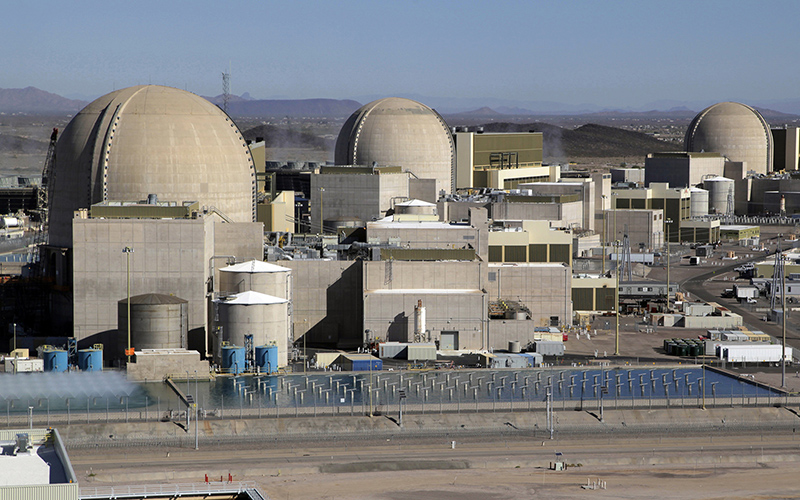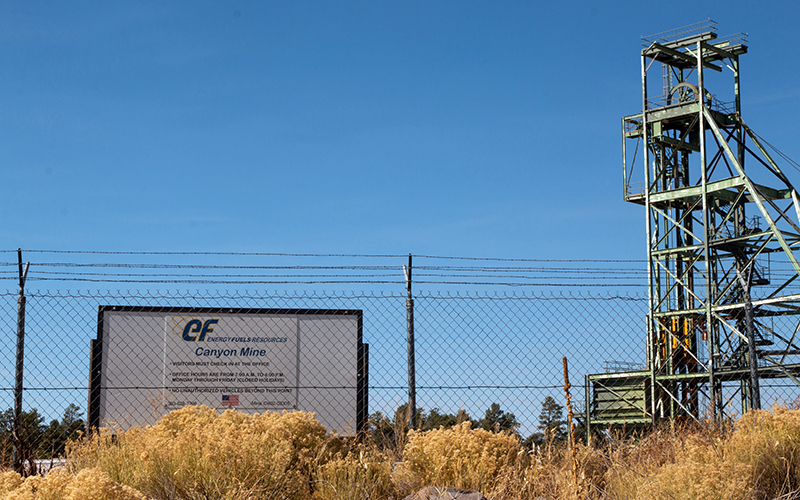WASHINGTON – Operators of the Palo Verde nuclear power plant told the Nuclear Regulatory Commission Thursday they have addressed oversights that let a plant operator be licensed without noting a medical condition that could have restricted his license.
The error was caught by officials at the plant and reported to the NRC, which issued an amended license with the medical restriction, but not before the operator had been licensed for almost nine months.
But the NRC noted in its report that the medical condition of the worker – who required a CPAP device to assist with breathing for sleep apnea – had been controlled, that he was in stable condition and it “had not interfered with the ability to perform licensed operator duties.”
Officials from the Tonopah plant took responsibility for the apparent violation, saying in a meeting with the NRC Thursday that “we freely take ownership of issues and see them through to resolution.”
Todd Horton, senior vice president of site operations summed it up during Thursday’s meeting when he said, “We didn’t do that well in this instance.”
But Jill Hanks, a spokesperson for plant operator Arizona Public Service, stressed that the issue discussed by the NRC on Thursday did not affect the operation of the plant.
“At the end of the day, it is a paperwork issue, not a safety issue, it had no effect on safety and operations,” Hanks said.
She stressed that while the process may seem excessive for a paperwork error, the company takes it seriously and it helps reinforce proper guidelines.
Ryan Kelly, spokesperson for the Arizona Green Party, said the apparent violation and others like it should be public knowledge and reported by APS as soon as they are found.
“The public deserves to know when a violation like that happens and be assured that something like that won’t happen again,” Kelly said.
He said the Green Party does not support nuclear energy and thinks that even an individual problem could be dangerous, adding that “all it takes is one person to have a bad day for disaster to strike.”
Palo Verde, commissioned in 1985, is the largest nuclear generating facility in the country, according to APS. Its three reactors generate 32 million megawatt-hours of energy a year, enough for 4 million people, the company’s website said.
APS officials said during Thursday’s NRC meeting that the mistake on the worker’s application for an operator’s license was not the fault of one individual, but partly due to a lack of oversight from a health services unit that has seen a high rate of turnover. They did not expand on what was behind the turnover rate.
APS Director of Training and Emergency Preparedness Jeff Fearn told the NRC that the company had already moved to fix its mistakes. Besides submitting a corrected application for the operator’s license in question, he said officials met with health services staff and ordered a “stand down” to go over the incident and the “importance of diligence.”
Dallan Lott, director of operations, said the computer training the company used to offer to people applying to be licensed for operator’s jobs was “not adequate.” That training will now be done in person, he said, to “ensure their application is correct and accurate.”
The NRC said it will come to a decision on a possible penalty for the apparent violation in the coming weeks.
But the agency also said in a December report on the issue that it is not considering a civil penalty because of the company’s swift action. NRC officials in Thursday’s meeting praised APS for acknowledging that a violation occurred in the first place and for providing “a lot of detail on the thoroughness of your corrective actions,” many of which will be in place by Friday.


